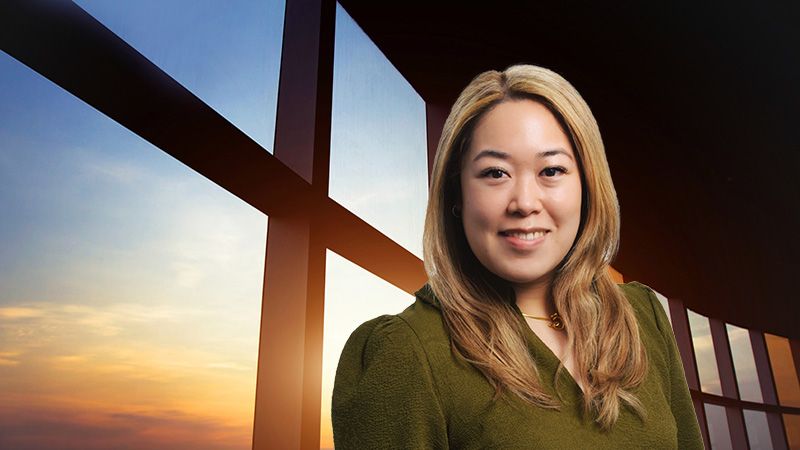In this year’s summer series on PA Future, we have asked junior members of ESG/sustainability teams to answer our questions on career paths, red flags and personal passions, to showcase the ‘Next Generation’ of talent coming through.
Candidates needed to be a member of a fund management, ESG/sustainability or stewardship/engagement team with less than five years’ experience.
Here, Georgina Chiu, ESG engagement manager at Royal London Asset Management, shares her path to impact investing, why we can’t give up with the systemic risks facing society, and how the industry will more widely integrate technology for a sustainable future.
How did you start your career and what led you to focus on ESG/sustainability? Is this a personal passion?
My career trajectory has been a varied one. Initially, I started as an auditor of investment managers and private equity firms. Ultimately, I wanted a role that would integrate my interests in sustainability and finance. ESG is not just a professional interest but a personal passion of mine, and I am a firm believer that impactful change follows the flow of capital. Transitioning from audit, I ventured into the renewable energy sector, managing assets that converted waste to energy. Subsequently, I pivoted to impact investing, which ultimately led me to my current focus on ESG.
You joined the industry around five years ago, when appetite and launches in this area of investment soared. What was that like to experience as a relatively new starter to the industry?
Entering the industry as a new professional was exciting, as it was an opportunity to gain a broad spectrum of experiences. I gained insight into stewardship, and I could complete in-depth research into areas of genuine interest. A recurring theme has been the collaboration with colleagues who not only share a similar passion but also offer diverse expertise and views. I find that working in ESG enables an environment of continuous learning and intellectual stimulation, which is both challenging and enriching.
And what has it been like for you over the past few years where appetite has waned, and we have experienced the anti-ESG backlash in some areas?
It has become increasingly clear that giving up is not an option; we must persist in addressing these critical issues. The systemic risks confronting our society remain. This situation underscores the necessity of reporting and evidencing what we do. With the regulatory landscape becoming more stringent, it forms the core of my daily responsibilities. As a team, we are developing how we quantify the impact of our engagements with companies.
What has been a career highlight for you?
One of the most rewarding moments in my career was discovering a role that matched both my passion and my purpose. I feel very fortunate to have the opportunity to use my skills and knowledge to help businesses address ESG issues and create positive impacts for society and the environment.
What is a red flag you in terms of greenwashing? Are you happy to hold companies or individuals accountable for greenwashing?
As an ESG engagement manager, I think my role is to be professionally sceptical when reviewing the information companies provide on their ESG practices. We engage with them regularly to understand their challenges and opportunities, and to encourage them to improve their data quality and disclosure standards. We also collaborate with stakeholders such as other investors, academics and NGOs to deepen our knowledge and to hold companies accountable for their actions and impacts.
Fast forward to five years from now – where would you like to be in terms of career aspirations? And how do you think the industry will have evolved by then?
Looking ahead to the next five years, I aspire to further my career by embracing greater responsibilities and challenges, particularly in addressing systemic issues that impact our environment and society. In addition, I hope to inspire and mentor others to have a career in responsible investment.
As for the industry, it will continue to adapt and innovate, driven by market demands and client needs. I anticipate greater integration of technology, such as the use of artificial intelligence, to enhance and scale what we do to ensure that capital can contribute positively to a sustainable future.








